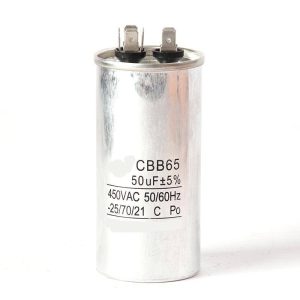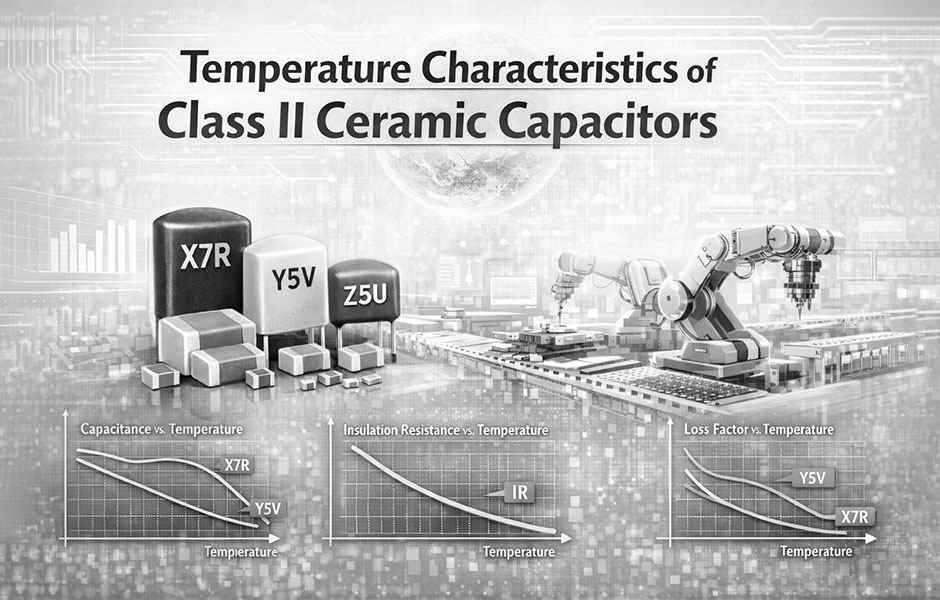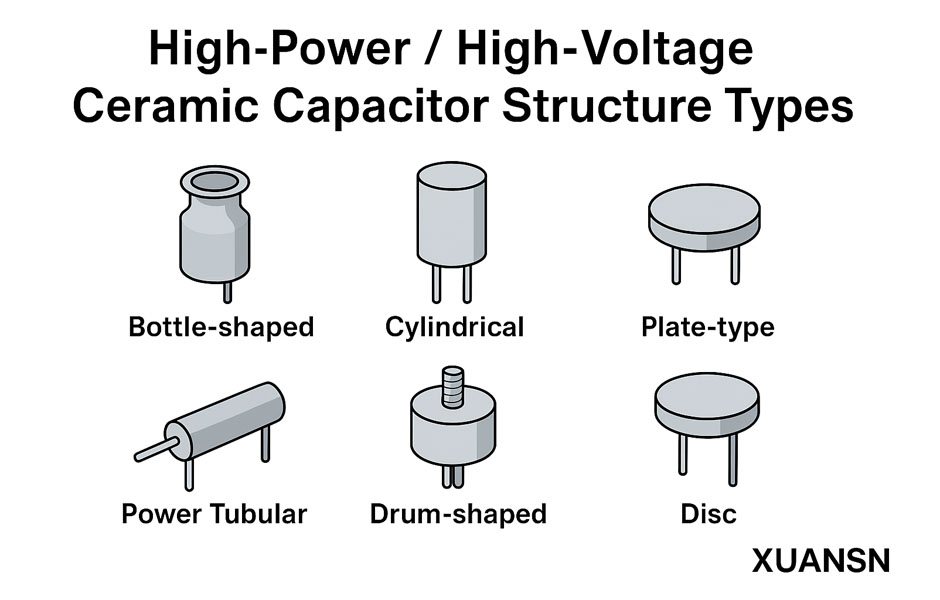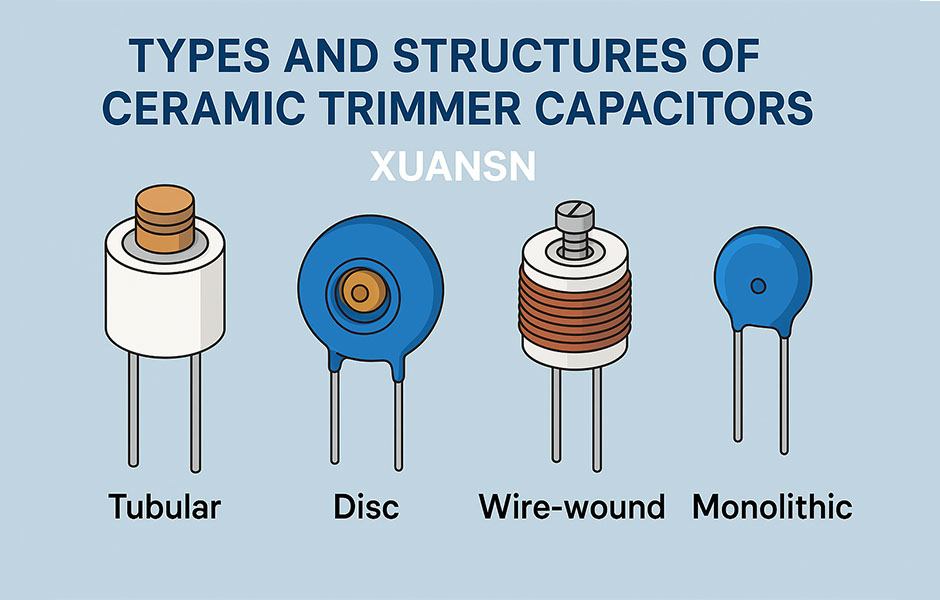I. Introduction:
Air conditioners are complex systems that rely on various components to provide cooling comfort. One crucial component is the AC capacitor. In this article, we will delve into the world of AC capacitor, exploring their definition, role in air conditioners, common faults, and the possibility of replacement. Understanding these aspects will empower homeowners to make informed decisions when it comes to maintaining and troubleshooting their air conditioning systems.

II.Definition of AC Capacitor:
AC capacitors are electronic components designed to store and release electrical energy in alternating current (AC) circuits. They consist of two conductive plates separated by an insulating material known as the dielectric. This construction allows them to store and discharge charge effectively, making them indispensable in air conditioner systems.
The dielectric material used in AC capacitors can vary, including materials like paper, plastic films, or electrolytic solutions. Different dielectric materials offer specific characteristics such as high voltage tolerance, temperature resistance, or stability over time.
III. The Role of AC Capacitor in Air Conditioners:
AC capacitors play a vital role in the operation of air conditioners. These systems require capacitors to provide the necessary power to start the motor and maintain a consistent voltage supply. In air conditioners, two types of capacitors are commonly used: start capacitors and run capacitors.
Start capacitors deliver a high voltage jolt to the motor during startup, providing the initial torque needed to get the compressor running smoothly. These capacitors provide the necessary boost to overcome the inertia of the motor and any resistance during startup.
Once the motor is in motion, run capacitors take over, providing a continuous supply of energy to keep the motor running efficiently. Run capacitors help maintain a steady voltage and improve the power factor of the motor, optimizing its performance and reducing energy consumption.
IV.Possible faults and analysis of AC capacitor in air conditioners:
Like any electronic component, AC capacitors can experience faults over time. Several common issues can arise, including capacitor aging, overheating, leakage, or bulging. These faults can adversely affect the performance of the air conditioner and may even lead to system failure if left unaddressed.
- Open Circuit:
- Symptom: Motor fails to start or hums but doesn’t run.
- Analysis: An open circuit in the capacitor means that the electrical connection is broken. This can be due to a failed internal connection or a blown fuse within the capacitor.
- Solution: Replace the faulty capacitor with a new one of the correct capacitance and voltage rating.
- Short Circuit:
- Symptom: Circuit breaker or fuse trips repeatedly.
- Analysis: A short circuit in the capacitor occurs when the dielectric material breaks down, causing a direct connection between the capacitor’s plates. This leads to excessive current flow and triggers protective measures like circuit breakers or fuses.
- Solution: Replace the shorted capacitor to restore proper functioning. Ensure the replacement capacitor matches the original specifications.
- Reduced Capacitance:
- Symptom: Motor struggles to start, poor cooling performance, increased energy consumption.
- Analysis: Over time, capacitors can experience capacitance reduction due to aging, dielectric breakdown, or contamination. This can result in insufficient starting torque or reduced efficiency of the motor.
- Solution: Measure the capacitance using a capacitor tester/meter. If the measured capacitance is significantly lower than the rated value, replace the capacitor with a new one.
- Overheating:
- Symptom: Capacitor feels excessively hot to touch, discoloration or bulging of the capacitor casing.
- Analysis: Overheating of the capacitor can occur due to high ambient temperatures, excessive voltage, or poor ventilation. It can lead to degradation of the dielectric material or even thermal breakdown.
- Solution: Ensure proper ventilation and cooling around the capacitor. If the capacitor is damaged or bulging, replace it promptly to prevent further issues.
- Electrolyte Leakage (Electrolytic Capacitors):
- Symptom: Noticeable fluid leakage, electrolyte stains on the capacitor, failure to hold a charge.
- Analysis: Electrolytic capacitors contain an electrolyte solution that can leak due to aging, manufacturing defects, or excessive heat. Leakage compromises the capacitor’s performance and can damage other components.
- Solution: Replace the leaking electrolytic capacitor with a new one, ensuring correct polarity and matching specifications.
In any case, it is important to exercise caution when working with capacitors as they can store electrical energy even when disconnected. If you are unsure or uncomfortable with troubleshooting or replacing capacitors, it is recommended to seek assistance from a qualified HVAC technician or electrician.
V.Can the AC Capacitor Be Replaced?
The good news is that AC capacitors can be replaced. However, it is essential to ensure compatibility with the specific air conditioner model and the type of capacitor (start or run). Mismatched capacitors can lead to further complications and potential damage to the system.
Replacing AC capacitors is best left to professional technicians. Capacitors store electrical energy even when disconnected from the power source, which poses a safety risk if mishandled. Technicians have the necessary expertise and tools to safely diagnose capacitor faults, select the appropriate replacements, and install them correctly.

VI.Cost Considerations for AC Capacitor Replacement:
The cost of replacing an AC capacitor can vary based on several factors. Location, capacitor type, and labor costs can influence the overall expenses. It is advisable to obtain multiple quotes from reputable technicians to get a better understanding of the cost range in your area.
While it is challenging to provide an exact cost, it is important to consider that replacing capacitors is typically more affordable than replacing an entire air conditioner system. Promptly addressing capacitor faults can prevent further damage and potential system breakdown, saving homeowners from more extensive repairs or replacements down the line.
VII. Conclusion:
AC capacitors are integral components in air conditioner systems, facilitating their smooth operation. Understanding their definition, role, and common faults empowers homeowners to identify potential issues and take appropriate action. Should a faulty capacitor arise, seeking professional assistance for replacement is crucial to ensure safety and optimal system performance. By addressing capacitor problems promptly and investing in regular maintenance, homeowners can enjoy the comfort of a well-functioning air conditioning system for years to come.



